第16章
Our hero did not stop till he had put a good five miles between himself and the poorhouse.
He knew that it would not be long before Mr. Mudge would discover his absence, and the thought of being carried back was doubly distasteful to him now that he had, even for a short time, felt the joy of being his own master.
His hurried walk, taken in the fresh morning air, gave him quite a sharp appetite. Luckily he had the means of gratifying it. The night before he had secreted half his supper, knowing that he should need it more the next morning.
He thought he might now venture to sit down and eat it.
At a little distance from the road was a spring, doubtless used for cattle, since it was situated at the lower end of a pasture. Close beside and bending over it was a broad, branching oak, which promised a cool and comfortable shelter.
"That's just the place for me," thought Paul, who felt thirsty as well as hungry, "I think I will take breakfast here and rest awhile before I go any farther."
So saying he leaped lightly over the rail fence, and making his way to the place indicated, sat down in the shadow of the tree.
Scooping up some water in the hollow of his hand, he drank a deep and refreshing draught.
He next proceeded to pull out of his pocket a small package, which proved to contain two small pieces of bread. His long morning walk had given him such an appetite that he was not long in despatching all he had. It is said by some learned physicians, who no doubt understand the matter, that we should always rise from the table with an appetite. Probably Paul had never heard of this rule. Nevertheless, he seemed in a fair way of putting it into practice, for the best of reasons, because he could not help it.
His breakfast, though not the most inviting, being simply unbuttered bread and rather dry at that, seemed more delicious than ever before, but unfortunately there was not enough of it. However, as there seemed likely to be no more forthcoming, he concluded in default of breakfast to lie down under the tree for a few minutes before resuming his walk.
Though he could not help wondering vaguely where his dinner was to come from, as that time was several hours distant, he wisely decided not to anticipate trouble till it came.
Lying down under the tree, Paul began to consider what Mr. Mudge would say when he discovered that he had run away.
"He'll have to milk the cows himself," thought Paul. "He won't fancy that much.
Won't Mrs. Mudge scold, thought? I'm glad I shan't be within hearing."
"Holloa!"
It was a boy's voice that Paul heard.
Looking up he saw a sedate company of cows entering the pasture single file through an aperture made by letting down the bars. Behind them walked a boy of about his own size, flourishing a stout hickory stick. The cows went directly to the spring from which Paul had already drunk. The young driver looked at our hero with some curiosity, wondering, doubtless, what brought him there so early in the morning. After a little hesitation he said, remarking Paul's bundle, "Where are you traveling?"
"I don't know exactly," said Paul, who was not quite sure whether it would be politic to avow his destination.
"Don't know?" returned the other, evidently surprised.
"Not exactly; I may go to New York."
"New York! That's a great ways off. Do you know the way there?"
"No, but I can find it."
"Are you going all alone?" asked his new acquaintance, who evidently thought Paul had undertaken a very formidable journey.
"Yes."
"Are you going to walk all the way?"
"Yes, unless somebody offers me a ride now and then."
"But why don't you ride in the stage, or in the cars?
You would get there a good deal quicker."
"One reason," said Paul, hesitating a little, "is because I have no money to pay for riding."
"Then how do you expect to live? Have you had any breakfast, this morning?"
"I brought some with me, and just got through eating it when you came along."
"And where do you expect to get any dinner?" pursued his questioner, who was evidently not a little puzzled by the answers he received.
"I don't know," returned Paul.
His companion looked not a little confounded at this view of the matter, but presently a bright thought struck him.
"I shouldn't wonder," he said, shrewdly, "if you were running away."
Paul hesitated a moment. He knew that his case must look a little suspicious, thus unexplained, and after a brief pause for reflection determined to take the questioner into his confidence. He did this the more readily because his new acquaintance looked very pleasant.
"You've guessed right," he said; "if you'll promise not to tell anybody, I'll tell you all about it."